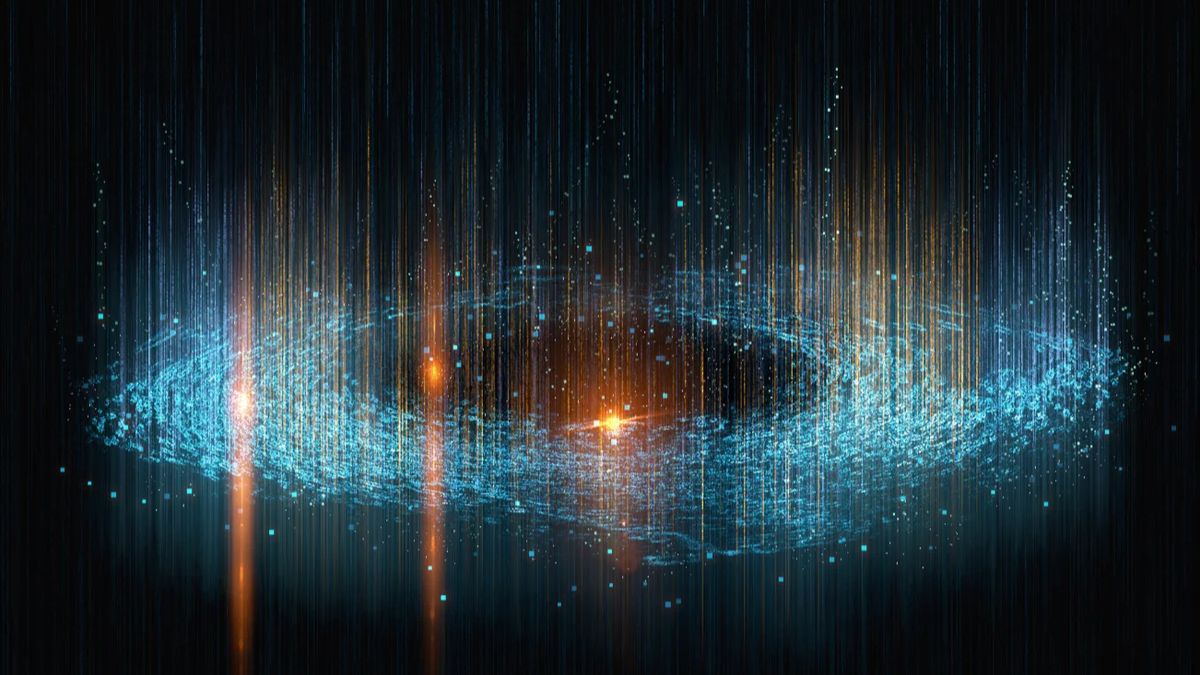If you’re a fan of classic sci-fi, you’ve probably watched The Matrix—that mind-bending film where the world as we know it turns out to be a simulation. Since its debut in 1999, it’s sparked endless debates about reality, illusion, and the very fabric of our universe. Now, thanks to a physicist named Melvin Vopson, the idea isn’t just stuck in movies—it’s entering scientific conversations.
Vopson, a researcher at Portsmouth University, has proposed a theory called the Second Law of Infodynamics. He believes it might offer real evidence that our universe could be something like the Matrix. Intrigued? Let’s break it all down.
Matrix
In the movie, humans live in a computer-generated dream world. Everything looks real but is controlled by machines using simulations. Vopson’s theory is inspired by this idea. He suggests that the universe doesn’t just run on matter and energy—it runs on information.
His central claim? Reality might be digital at its core, just like a software program. Every particle, every force, every atom could be built from bits of information—like pixels on a screen.
Infodynamics
To understand his idea, we need to go back to an old physics concept: the second law of thermodynamics. This law says that entropy, or disorder, always increases over time. Drop a glass, and it shatters—it never un-shatters itself. That’s entropy in action.
Vopson wondered: if matter follows the law of entropy, what about information? Shouldn’t it also get more disorganized over time?
Turns out, maybe not. After studying information systems, Vopson saw something unusual. In many cases, information entropy actually stays stable or even decreases. This means systems aren’t becoming more chaotic—they’re optimizing, organizing, and streamlining. That’s the core of his Second Law of Infodynamics.
Simulation
Now here’s where things get really interesting. In computer simulations or video games, developers use tricks to save memory and reduce the load on the processor. That means only the data that’s being used or seen is calculated—the rest is simplified or compressed.
According to Vopson, nature seems to do something similar. From atomic behavior to cosmic expansion, the universe seems to optimize data, compress it, and reduce redundancy—just like a software trying to be more efficient.
If we are in a simulation, this kind of data-saving approach makes perfect sense.
Evidence
Vopson doesn’t stop at theory—he gives examples across different fields:
Atomic Physics
Electrons follow very predictable paths that seem to favor low entropy. They move in organized ways, almost like following a digital code.
Cosmology
The universe is expanding, but it’s not gaining or losing heat. That suggests some kind of balance is being maintained—not just in energy, but possibly in information.
Biology
Vopson argues that DNA mutations don’t seem completely random. For example, when he studied how the COVID-19 virus mutated over time, he saw patterns. The virus appeared to be optimizing itself—as if updating software for better performance.
Reality
So, do we live in the Matrix? According to Vopson, the clues are everywhere. The symmetry in mathematics, the order of natural systems, the way life evolves—it all feels like a system that’s managing information, not just particles and energy.
In his view, if the universe is a computer program, it must be written in a highly efficient, data-optimized way. And that’s exactly what he believes we’re starting to uncover.
But of course, not everyone is convinced. Many scientists say Vopson’s theory lacks strong proof. They argue that what he sees as digital behavior can be explained by regular physics. After all, the universe is complex—and complexity often creates patterns without the need for a programmer.
Mystery
Whether or not Vopson is right, his theory taps into one of humanity’s oldest questions: is what we see real, or just an illusion? From ancient philosophers like Plato to modern science fiction, the idea of a fake or altered reality has never stopped fascinating us.
Science may not have the final answer just yet—but theories like this keep pushing the boundaries of what we know, and that’s how discovery begins. So, what do you think—are we just characters in a cosmic video game?
FAQs
Who is Melvin Vopson?
He’s a physicist from Portsmouth University.
What is infodynamics?
A theory where information entropy decreases or stays balanced.
Is the universe a simulation?
Vopson suggests it could be, based on data patterns.
Does biology support this theory?
Vopson says virus mutations show optimized behavior.
Do all scientists agree?
No, many believe more evidence is needed.




